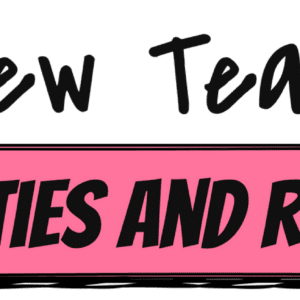Graduating with a teaching degree in an area of specialisation that is not in high demand can be a challenging experience. As a new graduate, you may find yourself competing with a high number of candidates for a limited number of positions, particularly if your focus is in areas like humanities or physical education. While the situation might seem daunting, this article explores some unconventional strategies and slightly controversial opinions to help you navigate the job market.

See more: Navigating the Teaching Profession: A Comprehensive Guide for New Teachers.
Embrace the Not-So-Popular Specialisations
A slightly controversial opinion is that less popular specialisations, such as humanities or physical education, are just as important as those in high demand, like science, maths, or languages. These areas are vital for developing well-rounded individuals and fostering critical thinking, creativity, and physical health.
So, instead of lamenting the lack of demand, embrace your specialisation. Become the advocate for your subject. Show how your area of teaching can contribute to a holistic education and prepare students for the challenges of the 21st century.
Pursue Further Specialisation
While your area of specialisation might not currently be in high demand, the world of education is continuously evolving. Today’s less popular subjects could be tomorrow’s sought-after fields. Consider pursuing further education to expand your knowledge and skills within your specialisation. This could mean a master’s degree, a PhD, or specialised certification.
While further education requires time and resources, it could set you apart from other candidates and open up opportunities in higher education, educational consulting, or curriculum development.
Leverage Transferable Skills
Teaching is not just about subject knowledge; it’s about a wide array of skills like communication, leadership, creativity, and problem-solving. These are transferable skills that can be applied in various roles within and outside the education sector.
Consider roles in educational administration, policy development, or even in industries like publishing or edtech, where your teaching background and subject expertise would be valuable. This might seem like a detour, but it could lead to a rewarding career path you hadn’t initially considered.
Network Beyond Your Specialisation
Don’t limit your networking to professionals within your specialisation. Connect with educators and administrators from all areas of education. Attend industry events, join online forums, and participate in webinars and workshops.
Expanding your network could lead to unexpected opportunities. Perhaps a school needs a humanities teacher to lead a new initiative, or an edtech startup is looking for subject matter experts. Networking is an age-old strategy, but it’s one that requires initiative and guts, especially when stepping outside your comfort zone.
Create a Unique Value Proposition
How can you contribute to a school beyond your subject specialisation? Maybe you have a knack for integrating technology into the classroom, or you have experience with project-based learning. Perhaps you can start a drama club to enhance students’ creative expression.
Identify what additional skills or experiences you bring to the table and highlight these in your application and interviews. Schools aren’t just looking for teachers; they’re looking for educators who can contribute to the school community in multiple ways.
Final Thoughts
Entering the job market with a non-demand specialisation can be challenging, but it also presents unique opportunities to carve out a niche for yourself. Remember, as an educator, your role is not just to teach a specific subject, but to foster curiosity, facilitate learning, and prepare students for a dynamic and ever-changing world. So don’t be afraid to think outside the box, embrace your specialisation, and redefine your path to success.






